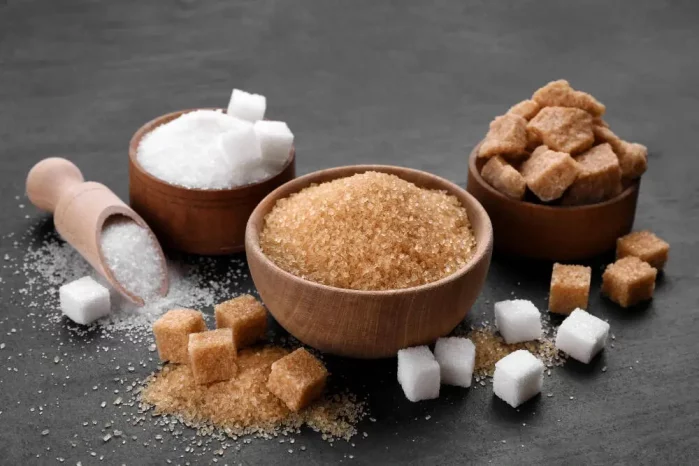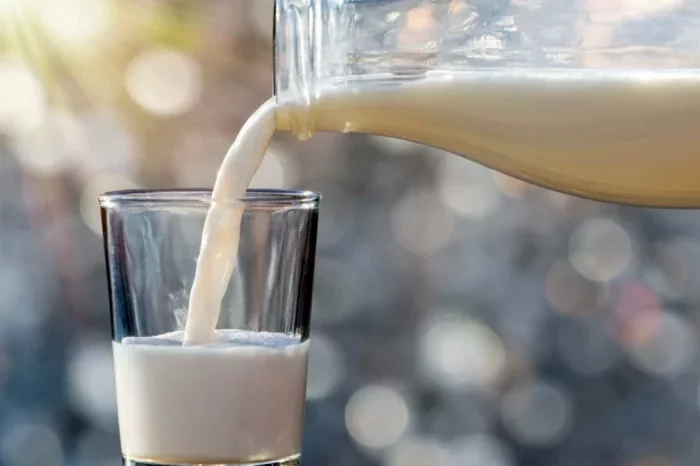Managing blood sugar levels is crucial for individuals with diabetes or those prone to hyperglycemia. Understanding how diet, hydration, and meal timing affect blood sugar can significantly impact one’s health and well-being. This article delves into various aspects of managing high blood sugar, offering practical advice and insights for maintaining optimal glucose levels.
Understanding Hyperglycemia
Hyperglycemia, or high blood sugar, occurs when there is too much glucose in the blood. For individuals with diabetes, this condition is often the result of the body’s inability to use insulin effectively or produce enough insulin. Insulin is a hormone that helps glucose enter the cells, where it is used for energy. When this process is impaired, glucose builds up in the bloodstream, leading to high blood sugar levels.
What High Blood Sugar Means for the Body
High blood sugar can have both short-term and long-term effects on the body. In the short term, symptoms of hyperglycemia include frequent urination, increased thirst, fatigue, blurred vision, and headaches. If left unchecked, hyperglycemia can lead to serious conditions such as diabetic ketoacidosis (DKA) and hyperosmolar hyperglycemic state (HHS), both of which require immediate medical attention.
Long-term hyperglycemia poses significant risks, including damage to blood vessels and nerves, leading to complications such as cardiovascular disease, kidney failure, retinopathy (which can cause blindness), and neuropathy (which can lead to limb amputation). Therefore, maintaining blood sugar levels within a target range is essential for preventing these complications and ensuring overall health.
Dietary Choices
Foods That Help Stabilize Blood Sugar Levels
Making informed dietary choices is one of the most effective ways to manage blood sugar levels. Here are some foods that can help stabilize blood sugar:
Fiber-Rich Foods: Foods high in fiber, such as vegetables, whole grains, and legumes, slow down the absorption of sugar into the bloodstream. This helps prevent spikes in blood sugar levels. Vegetables like broccoli, Brussels sprouts, and leafy greens are excellent options.
Legumes: Beans, lentils, and chickpeas are not only high in fiber but also contain protein, which can help keep you full longer and maintain stable blood sugar levels.
Certain Fruits: While some fruits are high in sugar, others, such as berries, apples, and pears, have a lower glycemic index and are packed with fiber, vitamins, and antioxidants.
Healthy Fats: Foods like avocados, nuts, and seeds contain healthy fats that can slow the absorption of carbohydrates and prevent blood sugar spikes.
Lean Proteins: Including sources of lean protein like chicken, fish, tofu, and eggs can help stabilize blood sugar by providing steady energy without causing spikes.
Foods to Avoid
Certain foods can exacerbate high blood sugar and should be limited or avoided:
Simple Carbohydrates: Foods high in simple carbohydrates, such as white bread, pastries, and sugary cereals, are quickly broken down into glucose, leading to rapid increases in blood sugar levels.
Sugary Snacks and Beverages: Candy, cookies, soda, and fruit juices can cause significant spikes in blood sugar due to their high sugar content.
Processed Foods: Many processed foods contain added sugars and unhealthy fats, which can contribute to high blood sugar levels. It’s important to read labels and avoid products with hidden sugars and trans fats.
High Glycemic Index Foods: Foods like white rice, potatoes, and cornflakes have a high glycemic index, meaning they can raise blood sugar levels more quickly and should be consumed in moderation.
Meal Timing
Is Skipping Meals Advisable?
Skipping meals is generally not advisable for individuals managing high blood sugar. When you skip meals, your body may experience a drop in blood sugar levels, which can lead to overeating later and cause spikes in blood sugar. Additionally, missing meals can disrupt your body’s insulin response, making it harder to manage glucose levels effectively.
Adjusting Meal Content
Instead of skipping meals, consider adjusting the content and timing of your meals:
Smaller, Frequent Meals: Eating smaller, more frequent meals throughout the day can help maintain steady blood sugar levels. This approach prevents large fluctuations and keeps your metabolism stable.
Balanced Meals: Each meal should include a balance of carbohydrates, protein, and healthy fats. This combination helps slow the absorption of sugar and provides a steady source of energy.
Snacking Wisely: Healthy snacks, such as a handful of nuts, a piece of fruit, or vegetable sticks with hummus, can help keep blood sugar levels stable between meals.
Hydration
The Importance of Staying Hydrated
Staying hydrated is crucial for managing blood sugar levels. Water helps the kidneys flush out excess glucose through urine, reducing blood sugar levels. Dehydration, on the other hand, can lead to higher blood sugar levels because the concentration of glucose in the blood becomes more concentrated.
Aim to drink at least eight glasses of water a day, and more if you are physically active or live in a hot climate. Avoid sugary drinks, which can raise blood sugar levels, and opt for water, herbal teas, or other non-caloric beverages.
Insulin Response
How Foods Influence Insulin Sensitivity and Glucose Uptake
The types of foods you eat can have a significant impact on insulin sensitivity and glucose uptake:
High-Fiber Foods: As mentioned earlier, fiber-rich foods help slow down glucose absorption, which can improve insulin sensitivity over time.
Whole Grains: Whole grains such as quinoa, brown rice, and whole oats have a lower glycemic index compared to refined grains and can improve insulin sensitivity.
Omega-3 Fatty Acids: Found in fatty fish, flaxseeds, and walnuts, omega-3 fatty acids can reduce inflammation and improve insulin sensitivity.
Vinegar: Including vinegar in your diet, such as in salad dressings, can slow down the digestion of carbohydrates and improve insulin sensitivity.
Chromium and Magnesium: Foods rich in these minerals, such as leafy greens, nuts, seeds, and whole grains, can enhance insulin sensitivity and help regulate blood sugar levels.
Emergency Measures
Steps to Take in Cases of Severe Hyperglycemia
In cases of severe hyperglycemia, it is crucial to take immediate action to prevent complications:
Take Insulin: If you use insulin, follow your healthcare provider’s instructions on adjusting your dose. Rapid-acting insulin can help lower blood sugar levels quickly.
Seek Medical Help: If your blood sugar levels remain high despite taking insulin, or if you experience symptoms such as nausea, vomiting, confusion, or difficulty breathing, seek medical help immediately. These could be signs of diabetic ketoacidosis or hyperosmolar hyperglycemic state, both of which require urgent medical attention.
Stay Hydrated: Drink plenty of water to help flush out excess glucose from your bloodstream. Avoid sugary beverages, which can worsen hyperglycemia.
Monitor Blood Sugar Levels: Keep a close eye on your blood sugar levels and track any changes. This information can help your healthcare provider make necessary adjustments to your treatment plan.
Long-Term Management
Tips for Long-Term Dietary Strategies to Manage Diabetes
Managing diabetes and preventing future spikes in blood sugar requires a comprehensive approach to diet and lifestyle:
Consistent Eating Schedule: Stick to regular meal times to help regulate blood sugar levels. Avoid skipping meals or having long gaps between meals.
Balanced Diet: Focus on a balanced diet that includes a variety of nutrient-dense foods. Prioritize vegetables, fruits, whole grains, lean proteins, and healthy fats.
Carbohydrate Counting: Learn to count carbohydrates to better manage your blood sugar levels. Work with a dietitian to develop a meal plan that suits your needs and lifestyle.
Portion Control: Pay attention to portion sizes to avoid overeating. Using smaller plates and bowls can help control portion sizes and prevent overeating.
Physical Activity: Regular physical activity can help improve insulin sensitivity and lower blood sugar levels. Aim for at least 150 minutes of moderate-intensity exercise per week.
Regular Monitoring: Keep track of your blood sugar levels regularly and note any patterns or changes. This information can help you and your healthcare provider make necessary adjustments to your treatment plan.
Stress Management: Chronic stress can affect blood sugar levels. Practice stress management techniques such as meditation, deep breathing, yoga, or spending time in nature.
Adequate Sleep: Ensure you get enough sleep each night, as poor sleep can negatively impact blood sugar levels and insulin sensitivity.
Education and Support: Stay informed about diabetes management and seek support from healthcare professionals, support groups, or diabetes education programs.
Conclusion
In conclusion, managing high blood sugar requires a multifaceted approach that includes making informed dietary choices, staying hydrated, timing meals appropriately, and understanding the impact of different foods on insulin sensitivity. By adopting these strategies and maintaining a consistent routine, individuals with diabetes or those at risk of hyperglycemia can achieve better control over their blood sugar levels and reduce the risk of complications. Always consult with healthcare professionals for personalized advice and treatment plans tailored to your specific needs.
Related Topics



























